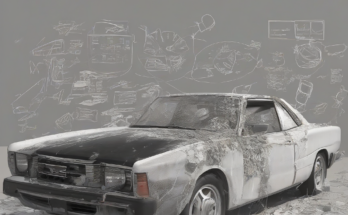Motorcycle Accident Claims: Understanding Your Rights and Options
Motorcycle accidents can have devastating consequences, leading to serious injuries, property damage, and even fatalities. If you’ve been involved in a motorcycle accident, it’s essential to understand your legal rights and options for seeking compensation. This comprehensive guide will delve into the intricacies of motorcycle accident claims, covering various aspects from liability determination to navigating the claims process.
Understanding Liability in Motorcycle Accidents
Determining liability in motorcycle accidents is crucial for establishing who is responsible for the accident and, subsequently, who is obligated to compensate for damages. In most cases, liability is determined based on the principles of negligence. This means that the party responsible for causing the accident must have acted carelessly or failed to exercise reasonable care, leading to the resulting injuries and damages.
Common scenarios that may lead to liability in motorcycle accidents include:
- Driver Negligence: This encompasses a wide range of behaviors, such as speeding, driving under the influence of alcohol or drugs, distracted driving (using cell phones, texting, etc.), failing to yield the right of way, and aggressive driving practices.
- Road Hazards: Defective road surfaces, poorly maintained traffic signals, and inadequate signage can contribute to accidents, potentially making the responsible government entity liable.
- Vehicle Defects: Malfunctioning brakes, faulty tires, or other mechanical issues in the motorcycle or other vehicles involved can also be grounds for liability. In such cases, the manufacturer or any party responsible for the defect may be held accountable.
- Other Parties: In some cases, other parties such as pedestrians, cyclists, or even other motorcyclists may be responsible for the accident. This typically occurs when these parties fail to adhere to traffic laws and safety precautions.
Types of Damages in Motorcycle Accident Claims
Motorcycle accident claims typically seek compensation for various types of damages, which can be categorized into two main categories: economic damages and non-economic damages.
Economic Damages
- Medical Expenses: These include costs associated with emergency medical care, hospitalization, surgeries, medication, physical therapy, and any other treatment related to the accident injuries.
- Lost Wages: If you are unable to work due to your injuries, you can claim compensation for lost wages, both past and future.
- Property Damage: This covers the cost of repairs or replacement for your motorcycle, as well as any other property damage caused by the accident.
- Other Expenses: You may also be eligible for compensation for other expenses, such as home health care, transportation costs, and lost earning capacity.
Non-Economic Damages
- Pain and Suffering: This category covers the physical and emotional pain and suffering you experience as a result of the accident, including discomfort, anxiety, depression, and PTSD.
- Loss of Enjoyment of Life: You may also be entitled to compensation for the diminished quality of life caused by your injuries, affecting your hobbies, activities, and overall well-being.
- Disfigurement: If you sustain disfigurement from the accident, you can claim compensation for the emotional distress and social stigma associated with the disfigurement.
Navigating the Claims Process
Filing a motorcycle accident claim can be a complex process, involving multiple steps and parties. Here’s a general overview of the process:
- Report the Accident: Immediately after the accident, report it to the police and obtain a copy of the accident report. This document is crucial evidence in your claim.
- Seek Medical Attention: It’s imperative to seek medical attention as soon as possible after the accident, even if your injuries seem minor. This documentation will support your claim and demonstrate the severity of your injuries.
- Gather Evidence: Collect all relevant evidence related to the accident, including photographs of the accident scene, witness statements, and any medical records.
- Contact Your Insurance Company: Notify your insurance company about the accident and provide them with the necessary information. If you have uninsured/underinsured motorist coverage, you may need to file a claim through your own insurer to cover damages from the other driver.
- Negotiate with the Other Party’s Insurer: Your insurance company or an attorney will negotiate with the other party’s insurance company to try and reach a settlement agreement. This process can involve multiple rounds of negotiations, and it’s essential to have legal representation to protect your interests.
- Consider Filing a Lawsuit: If negotiations fail or the other party’s insurer refuses to offer a fair settlement, you may have to file a lawsuit to seek compensation for your damages.
Importance of Legal Representation
While it may seem tempting to try and handle your motorcycle accident claim on your own, hiring an experienced motorcycle accident attorney can significantly increase your chances of a successful outcome. Attorneys possess the knowledge, experience, and negotiating skills to navigate the complexities of the legal process and protect your rights.
- Expert Negotiation: Attorneys are skilled negotiators and can leverage their knowledge of the law to secure a fair settlement on your behalf. They will know how to assess the value of your claim and negotiate with the insurance companies for the maximum compensation you deserve.
- Legal Expertise: Motorcycle accident laws can be intricate, and attorneys are well-versed in these laws, ensuring your claim is filed correctly and meets all legal requirements.
- Evidence Collection: Experienced attorneys know how to gather and present the necessary evidence to support your claim. They can help you collect evidence from witnesses, medical records, and the accident scene, building a strong case.
- Legal Representation in Court: If negotiations fail and you need to file a lawsuit, your attorney will represent you in court, arguing your case before a judge and jury.
Tips for Protecting Yourself After a Motorcycle Accident
Taking proactive steps after a motorcycle accident can help protect your rights and ensure a smooth claims process. Here are some essential tips:
- Document the Accident: If possible, take photos or videos of the accident scene, including any damage to your motorcycle or other vehicles involved. Get the contact information of any witnesses.
- Exchange Information: Obtain the contact information of the other driver(s) involved in the accident, including their name, address, insurance company, and policy information.
- Seek Medical Treatment: Seek medical attention as soon as possible after the accident, even if your injuries seem minor. This will ensure proper treatment and documentation for your claim.
- Don’t Admit Fault: Avoid making any statements that could be interpreted as admitting fault for the accident. If asked about the accident, stick to factual details and avoid speculating.
- Keep a Detailed Record: Maintain a journal or log of all your expenses related to the accident, including medical bills, lost wages, property damage, and any other relevant costs.
- Don’t Sign Anything Without Legal Advice: Be cautious about signing any documents related to your claim, especially without consulting with an attorney. Ensure you understand the terms and implications before signing.
Common Mistakes to Avoid
Motorcycle accident claims can be complex, and making mistakes can negatively impact your chances of receiving fair compensation. Here are some common mistakes to avoid:
- Delaying Medical Treatment: Don’t delay seeking medical attention after an accident, even if your injuries seem minor. Delays can weaken your claim and make it more difficult to establish a link between your injuries and the accident.
- Accepting a Quick Settlement: Insurance companies may offer quick settlements to avoid going to court, but these offers are often significantly lower than the true value of your claim. Be cautious and consult with an attorney before accepting any settlement.
- Speaking to the Other Party’s Insurance Company: Avoid speaking to the other party’s insurance company without legal representation. They may try to use your statements against you to minimize their liability.
- Failing to Keep Records: Document all your expenses, medical records, and other relevant information related to your claim. Lack of records can make it challenging to prove your damages.
- Not Hiring an Attorney: While you may think you can handle your claim yourself, hiring an experienced motorcycle accident attorney can significantly increase your chances of obtaining a fair settlement.
Conclusion
Motorcycle accident claims are a serious matter that requires careful consideration. By understanding your rights, knowing your options, and taking the necessary steps to protect yourself, you can navigate the claims process with confidence and pursue the compensation you deserve. Remember, seeking legal representation from an experienced motorcycle accident attorney is essential to ensure your rights are protected and your claim is handled effectively.



